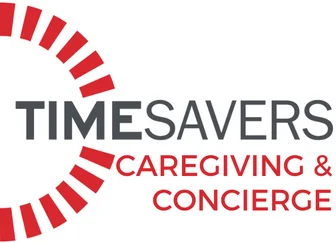As families face the realities of aging, a common question arises: “When is the right time to hire a caregiver?” Many wait until a crisis—an unexpected fall, hospital discharge, or sudden health decline—to seek caregiving support. However, engaging a caregiver early in the care continuum provides significant benefits, helping seniors maintain a higher quality of life and reducing stress for families.
Proactive vs. Reactive Care: Why Early Intervention Matters
Waiting until a crisis occurs often leads to hasty decisions under stressful circumstances. Families are left scrambling to find immediate care while navigating medical recommendations and handling emotional strain. By bringing a caregiver into the picture early, seniors and their families can plan ahead and build a seamless care journey that adapts as needs evolve.
Benefits of Starting Care Early
1. Building Trust and Comfort
Introducing a caregiver early allows time for a meaningful relationship to develop between the caregiver and the senior. Familiarity breeds comfort, which helps reduce resistance to care as needs increase.
2. Maintaining Independence
A caregiver’s role isn’t just about providing hands-on assistance. Early support may focus on helping with light housekeeping, meal preparation, medication reminders, and companionship—services that help seniors maintain their independence for as long as possible.
3. Preventing Crises
Caregivers trained to recognize early warning signs of health issues can help prevent emergencies. Regular check-ins and consistent care often lead to early detection of physical or cognitive changes that might otherwise go unnoticed.
4. Seamless Transition Through the Care Continuum
As health needs evolve, having a trusted caregiver already in place ensures a smoother transition from light assistance to more comprehensive care. Seniors avoid the stress of sudden caregiver changes, and families benefit from continuity and familiarity.
5. Reducing Family Caregiver Stress
Starting early relieves the pressure on family members who often try to handle caregiving duties themselves. With a professional caregiver as part of the team, families can focus on quality time with their loved ones rather than managing day-to-day tasks.
6. Improved Health Outcomes
Studies have shown that consistent caregiving support leads to better health outcomes for seniors. Early involvement of a caregiver can help prevent hospital readmissions and support recovery from illnesses or surgeries.
From Companion Care to Memory Care: A Caregiver for Every Stage
Engaging a caregiver early ensures support at every stage of aging:
- Early Stage: Light assistance with daily activities and companionship
- Intermediate Stage: Help with personal care, mobility, and medication management
- Advanced Stage: Full assistance with all activities of daily living (ADLs) and specialized care, such as memory care or post-hospitalization recovery
Planning Ahead for Peace of Mind
Rather than waiting until care becomes urgent, families who engage a caregiver early set themselves and their loved ones up for success. Proactive care provides a strong foundation for aging gracefully, maintaining dignity, and ensuring well-being throughout every stage of life.
By planning ahead and embracing the care continuum, families gain the peace of mind that comes from knowing their loved ones are in compassionate, capable hands—no matter what the future holds.

